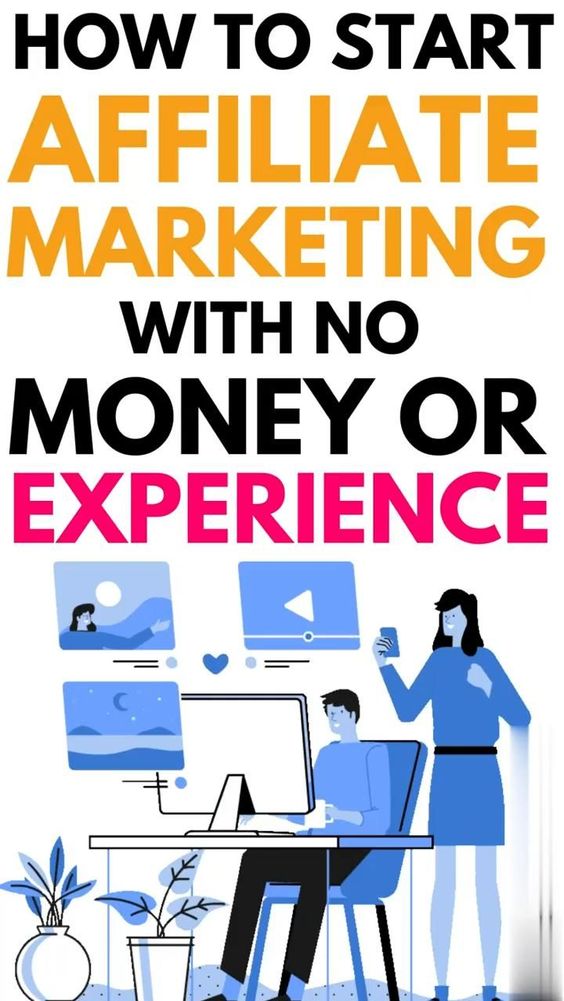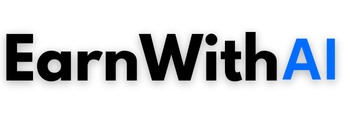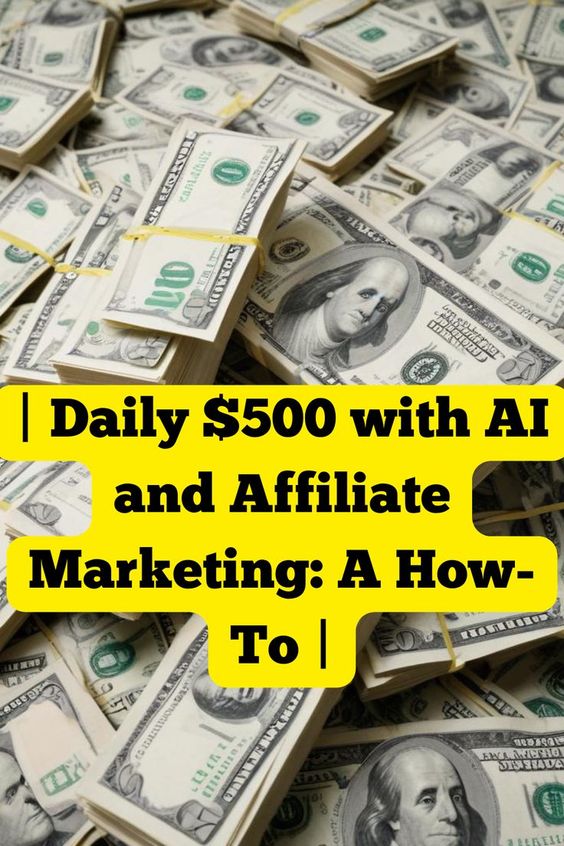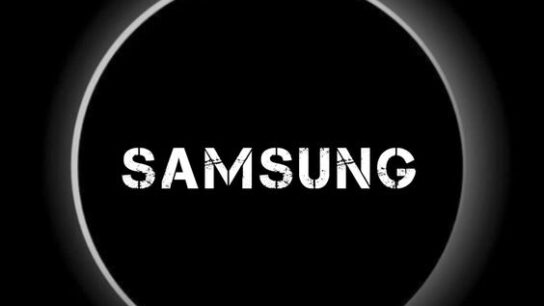Affiliate marketing has evolved from a niche strategy to a mainstream approach for generating online income. As the digital landscape grows more competitive, marketers are turning to advanced technologies like Artificial Intelligence (AI) to enhance their strategies. This blog post delves into how AI and affiliate marketing intersect, offering insights on leveraging AI to optimize affiliate marketing strategies, from identifying high-converting products to automating content creation and link management.
The Role of AI in Affiliate Marketing
What is AI?
Artificial Intelligence (AI) refers to systems designed to perform tasks that typically require human intelligence. These tasks include problem-solving, learning from data, and making decisions. In the context of affiliate marketing, AI can streamline processes, provide deep insights, and automate repetitive tasks, thus significantly improving efficiency and outcomes.
How AI Transforms Affiliate Marketing
1. Identifying High-Converting Products
In affiliate marketing, choosing the right products to promote is crucial. AI enhances this process by analyzing vast amounts of data to identify which products are likely to convert best. Machine learning algorithms can assess historical performance data, consumer behavior, and market trends to recommend high-converting products. Tools like Affiliatly use AI to help affiliates find the best products based on performance metrics and conversion rates.
2. Automating Content Creation
Creating engaging content consistently can be time-consuming. AI-driven tools can simplify this by generating high-quality content tailored to your audience. Platforms such as Jasper and Copy.ai use AI to assist with content creation, ensuring it aligns with your affiliate marketing goals. These tools can draft blog posts, social media updates, and promotional materials, freeing up time for other critical tasks.
3. Streamlining Link Management
Affiliate link management can be a tedious process, especially with numerous links and campaigns. AI tools can automate link tracking, monitoring, and optimization. For instance, Pretty Links and ThirstyAffiliates use AI to manage and optimize affiliate links, detect broken links, and analyze link performance. This automation ensures that your links are always functional and contributing to your marketing efforts.
4. Enhancing User Personalization
AI excels in personalizing user experiences. By analyzing user behavior and preferences, AI can deliver personalized product recommendations. This personalization increases the likelihood of conversions, as users are more likely to engage with products tailored to their interests. AI-powered recommendation engines, such as those used by Amazon, can help affiliates optimize their marketing strategies by suggesting relevant products to their audience.
5. Optimizing Ad Campaigns
Managing and optimizing ad campaigns is another area where AI shines. AI tools can analyze campaign performance in real time, making adjustments to improve ROI. Automated bidding strategies, predictive analytics, and audience segmentation can be managed by AI platforms like Google Ads and Facebook Ads. These tools help affiliates allocate their advertising budgets more effectively and achieve better results.
Key AI Tools for Affiliate Marketing

1. Content Creation Tools
AI-powered content creation tools are invaluable for generating marketing materials. Platforms like Jasper and Copy.ai use advanced algorithms to produce content that resonates with your audience. These tools help ensure that your content remains engaging and relevant while saving you significant time.
2. Affiliate Link Management
Effective link management is crucial for tracking and optimizing affiliate performance. Tools like ThirstyAffiliates and Pretty Links offer AI-driven solutions for managing affiliate links, including features like link cloaking and performance analytics.
3. Analytics and Optimization Platforms
AI-driven analytics platforms such as Google Analytics and HubSpot provide deep insights into your affiliate marketing efforts. These tools use AI to track key performance indicators, analyze trends, and optimize your strategies for better results.
4. Email Marketing Automation
AI enhances email marketing by automating list segmentation, content personalization, and campaign scheduling. Platforms like Mailchimp and Sendinblue leverage AI to ensure that your emails reach the right audience with the most relevant offers.
Best Practices for Integrating AI into Your Affiliate Marketing Strategy

1. Start with a Clear Strategy
Before incorporating AI, define your affiliate marketing goals and strategies. Identify areas where AI can add the most value, whether it’s content creation, link management, or ad optimization. Starting with a clear strategy ensures that AI tools are used effectively to enhance your efforts.
2. Monitor and Analyze Performance
Even with AI handling many tasks, regular monitoring and analysis are essential. Track the performance of AI-driven initiatives to assess their impact on your affiliate marketing outcomes. Use insights from AI tools to make data-driven decisions and refine your strategies.
3. Stay Updated on AI Advancements
AI technology is rapidly evolving, and staying informed about the latest developments can give you a competitive edge. Follow industry news, attend webinars, and participate in online communities to keep up with new AI tools and trends that could benefit your affiliate marketing efforts.
4. Test and Optimize
AI tools offer powerful capabilities, but their effectiveness can vary depending on how they are used. Test different AI solutions and optimize their usage based on performance data. Continuous testing and optimization help ensure that you get the best results from your AI-driven strategies.
FAQs
1. How does AI improve affiliate marketing strategies?
AI enhances affiliate marketing strategies by identifying high-converting products, automating content creation, streamlining link management, personalizing user experiences, and optimizing ad campaigns. These capabilities help affiliates maximize their earnings while minimizing effort.
2. What are some AI tools for affiliate link management?
AI tools for affiliate link management include ThirstyAffiliates and Pretty Links. These tools automate link tracking, monitor performance, and optimize links to improve affiliate marketing results.
3. How can AI assist in content creation for affiliate marketing?
AI tools like Jasper and Copy.ai assist in content creation by generating high-quality, engaging content tailored to your audience. These tools can draft blog posts, social media updates, and promotional materials, saving time and ensuring relevance.
4. What role does AI play in ad campaign optimization?
AI plays a significant role in ad campaign optimization by analyzing performance data, adjusting bids, and targeting the right audience. Platforms like Google Ads and Facebook Ads use AI to enhance ad campaigns and improve ROI.
5. How can I stay updated on AI trends for affiliate marketing?
Stay updated on AI trends by following industry news, attending webinars, participating in online forums, and subscribing to newsletters. Keeping informed about the latest advancements helps you leverage new AI tools and strategies effectively.
What is AI in affiliate marketing?
AI in affiliate marketing refers to the use of artificial intelligence technologies to enhance various aspects of affiliate strategies, such as identifying high-converting products, automating content creation, and optimizing link management to boost performance and efficiency.
Which AI technology is being used to automate repetitive tasks and improve efficiency in industries like manufacturing and logistics?
Robotic Process Automation (RPA) and Machine Learning (ML) are commonly used to automate repetitive tasks and improve efficiency in manufacturing and logistics.
What is the algorithm of AI marketing?
AI marketing algorithms typically include machine learning algorithms, such as neural networks and decision trees, that analyze data to predict consumer behavior, personalize content, and optimize marketing strategies.
How is AI used in marketing automation?
AI in marketing automation is used to streamline and personalize campaigns by automating tasks like email marketing, lead scoring, and ad targeting based on data-driven insights.
What type of AI is used in marketing?
Marketing commonly uses types of AI such as Machine Learning (ML), Natural Language Processing (NLP), and Predictive Analytics to analyze data, personalize user experiences, and optimize marketing efforts.
Why use AI for marketing?
AI is used in marketing to enhance efficiency, personalize customer interactions, improve decision-making through data analysis, and automate repetitive tasks, leading to better targeting and higher ROI.
How to start AI marketing?
Start AI marketing by defining your goals, selecting appropriate AI tools, integrating them into your marketing processes, and continuously analyzing performance to refine and optimize your strategies.
What is the future of AI in marketing?
The future of AI in marketing includes more advanced personalization, predictive analytics, automated content creation, and improved customer insights, leading to more effective and efficient marketing strategies.
What are AI tools?
AI tools are software applications that use artificial intelligence technologies to perform tasks such as data analysis, content creation, customer interaction, and process automation, enhancing various business functions.
Conclusion
AI and affiliate marketing are a dynamic duo that can elevate your affiliate marketing efforts to new heights. By leveraging AI to identify high-converting products, automate content creation, manage affiliate links, and optimize ad campaigns, you can maximize your earnings with minimal effort. Embrace AI tools and best practices to stay ahead in the competitive world of affiliate marketing and achieve greater success.
For more information on integrating AI into your strategies, check out this comprehensive guide on AI in affiliate marketing and explore additional resources on AI-driven content creation.





[…] Enhancing Content Personalization […]